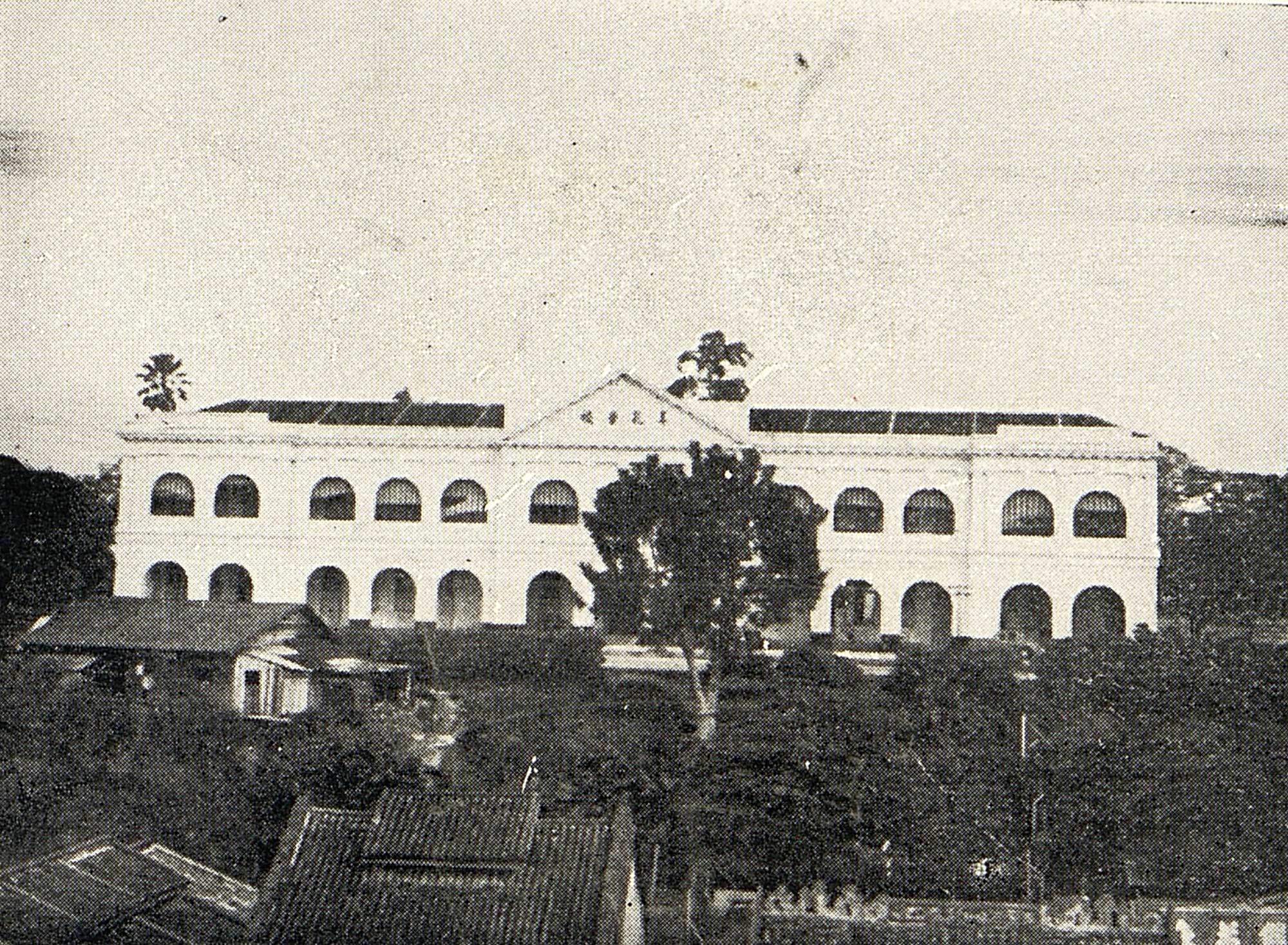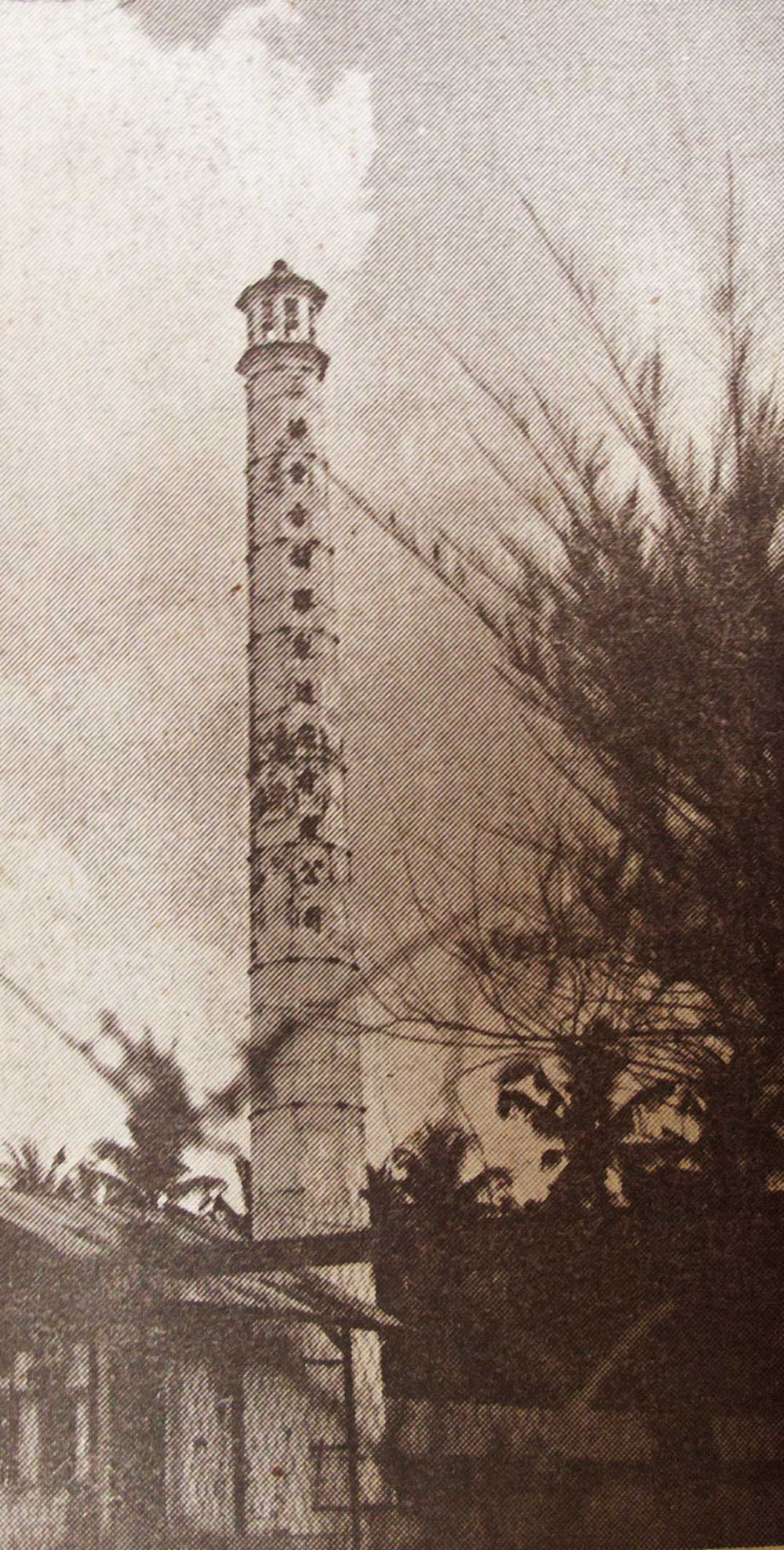The Engchoon Kuala Lumpur History Gallery






(1892 - 1966)
Huang Chongji
Huang Chongji, courtesy name Qingjing, was born in 1892 in Qingyuan, Engchoon, Fujian. At the age of 16, he accompanied his father to Malaya, living in Klang and Kuala Lumpur successively. His father, Shibo, founded the He Mao Native Products Company in Kuala Lumpur. His mother, née Chen, had three sons, with Chongji being the second; his elder brother was named Chongshui, and his younger brother was named Chongyu. Diligent and eager to learn from a young age, Chongji initially be trained in his father’s shop. At the age of 18, after his father retired due to old age, he ventured into the business world, working tirelessly. By the age of 28, he had made a name for himself, establishing the Jinli Timber Yard in Jinjang, Kuala Lumpur, dealing in timber and hardware. Over the next 35 years, he displayed exceptional talent, founding 15 industrial and commercial enterprises across Malaya, Thailand, and China.
In the industrial sector, he established numerous factories across Malaya. Known factories include the Huang Chongji Jelutong Rubber Processing Plant (producing chewing gum), the Kuala Lumpur Weixin Rubber Factory, the Kuala Lumpur Huang Chongji Biscuit Factory and its branches (producing biscuits and candies), a rice mill, a soap factory, the Kapar New Defeng Oil Factory in Klang (producing coconut oil), the Huang Chongji Oil Factory in Klang (producing chemical oil, coconut oil, and peanut oil), and the Chinese Rubber Manufacturing Factory in Kuala Lumpur and Klang (producing shoes and tires). He also purchased machinery for his factories from Tan Kah Kee in Singapore. The older residents of Klang still remember the Zhongbiao brand rubber shoes produced by the Huang Chongji Rubber Factory. Additionally, he established timber factories in Gemas, Jerantut, Triang, and Kuantan, producing various types of timber; a winery in Kuala Lumpur producing fruit wines; the Zhenhua Crepe Factory producing crepe fabric; and the Chongji Xiamen Factory in Xiamen, China, manufacturing wine, oilboards, batteries, and machinery.
In the agricultural sector, he established the Huang Chongji Farm in Jerantut, covering over 4,300 acres, where he cultivated cassava (producing tapioca starch and pellets), oil palms, rubber trees, coconuts, and fruit trees. His Huang Chongji Tea Factory and plantation in the Cameron Highlands spanned over 1,100 acres, producing both Chinese and Western teas for the local market and exporting to Europe, the United States, India, South Africa, and other countries.
In the commercial sector, he founded several companies, including the Huang Chongji Trading Company in Malaya and Thailand, and in Kuala Lumpur, he established Huang Chongji Limited, Yongli Limited, Dejin Limited, and Yongguang Limited, among others.
Huang Chongji actively participated in the Chinese community’s affairs, serving as a leader in several major Chinese organizations, treating public matters as his own and earning deep respect from the community. He served for the Ng Clan Teng Chin Association as the clan leader (1951-1952, 1954-1966) and trustee (1954-1966). He was also the president of the Kuala Lumpur Hokkien Association and the Engchoon Association, and held key positions in the Selangor Chinese Chamber of Commerce, the Selangor Chinese Assembly Hall, Tung Shin Hospital, the YMCA, and the Yiyuan Club, among others.
Notably, during the reconstruction of the Hokkien Association, there was a shortfall in funds. The board decided to privately issue a lottery (disguised as admission tickets for a fair) to cover the debt of over twenty thousand dollars. However, fearing legal repercussions, the fundraising nearly stalled. Huang Chongji believed that once the lottery was issued, the community’s trust should not be betrayed. He took full responsibility and used his coconut oil factory in Klang as the venue for the lottery draw, ensuring the completion of the association’s fundraising plan. When summoned by the Lieutenant Governor for questioning, he admitted to organizing the lottery and emphasized that it was done out of necessity for public welfare. The Lieutenant Governor ultimately did not pursue the matter further, but this incident highlighted Huang Chongji’s spirit of personal sacrifice for the public welfare.
Huang Chongji led the post-war reestablishment efforts for Confucian High School
Source: Provided by Centre for Malaysian Chinese Studies

Huang Chongji was passionate about Chinese education and served as a board member of two important Chinese secondary schools in Kuala Lumpur. After World War II, he took practical actions to assist in the reestablishment of these two schools. First, he played a crucial role in the reopening of Confucian High School. Before the war, Confucian High School offered senior high school, junior high school, teacher training, and primary school education, with over a thousand students, making it the premier educational institution in Selangor. During the Japanese occupation of Malaya (1941-1945), the school was closed. By September 1945, after the Japanese surrendered, Chinese schools everywhere began to reopen, but Confucian High School faced difficulties due to controversies surrounding the former principal’s competence and the vice-principal not being accepted as the new principal. Huang Chongji stepped in, resolved the leadership issue, and donated five thousand dollars for the reopening expenses.
Similarly, the reopening of Kuala Lumpur Chinese High School was largely due to his efforts. This school, organized by the Hokkien Association, was founded around 1940, with Huang Chongji as one of the founding board members. The school closed during the war and had no one to take charge of its reopening afterward. After handling the reopening of Confucian High School, Huang Chongji convened the board members of Chinese High School, contributed a substantial amount of money, and successfully reopened the school.
In addition, to enlighten the public and spread culture, he also participated in the founding of the “Yi Qun Daily” (1919) and “China Press” (1946).
At Huang Chongji Rubber Company in Klang, photographed in 1950
Source: Provided by Centre for Malaysian Chinese Studies

In addition to donating to Chinese organizations and schools, Huang Chongji was also generous in assisting impoverished relatives and friends. He made substantial donations and purchased Chinese government bonds to support China’s resistance against Japan and to aid refugees. At that time, he was hailed as the number one leading figure in charitable contributions among the Fujianese community across four provinces. Lim Lian Geok commented, “Huang Chongji is astute, eloquent, and excellent in diplomacy. Conversations with him feel like a refreshing breeze.” He was exceedingly generous to friends, fulfilling his moral obligations, but he was quite strict with his employees, showing no leniency. Even those who had served him for decades did not see much personal advancement, which was a notable shortcoming for him.
During the Japanese occupation, stories of Huang Chongji’s righteous support for the anti-Japanese forces and the Allies forces were widely recounted. Allied forces had parachuted personnel into his farm in Jerantut, Pahang, which covered approximately 20,000 acres. If the Japanese military had discovered this, his entire family would have been in mortal danger. However, Huang Chongji bravely took the risk of opposing the enemy, not only providing shelter to the Allied personnel but also sending people to gather intelligence. He endured numerous life-threatening situations under Japanese rule, making his experiences remarkably extraordinary.
Early on, after the Japanese forces captured Singapore (February 25, 1942), Huang Chongji, unable to escape in time, was ordered to return to Kuala Lumpur on March 1. He underwent as many as 28 coercive interrogations by the Japanese military because they knew he was the financial officer for the anti-Japanese mobilization conference in Kuala Lumpur during the war, and he had attempted to avoid collaboration when the Japanese arrived. Surviving under constant surveillance was an extraordinary feat.
Through his relatives, Huang Chongji completed a mission on December 7, 1944, aiding the Allied forces by air-dropping four personnel and seven pieces of military equipment near his farm at the 89-mile mark on the Jerantut-Kuantan road in Pahang. In March 1945, he secretly arranged for the rescue of three surviving American airmen after their plane crashed. In May 1945, he allowed a paratroop team to land in the forest near Jerantut, about 30 miles from his farm, comprising four British officers and five Chinese members of Unit 136.
By 1945, just before the Japanese surrender, new evidence of Huang Chongji’s assistance to the anti-Japanese efforts was discovered, leading to a raid on his residence in Jinjang, Kuala Lumpur. Fortunately, the alert Huang Chongji and his eldest son disguised themselves and fled to the farm. A few days later, after Japan’s formal unconditional surrender, Huang’s family was spared from potential massacre. It is estimated that Huang contributed approximately 13 million dollars to the anti-Japanese forces, the Allies, and related activities, exhausting all his pre-war earnings.
Huang Chongji and his wife, née Lin, had six sons and two daughters: Shuangjing, Zhiqiang, Guangyuan, Zhicai, Zhisheng, and Zhiyong, and daughters Zhixin and Zhiyan. Huang passed away in 1966 at the age of 74.
Note: This article is excerpted from “Biographies of Chinese Figures in Malaysia,” Volume 2, pages 546-549, written by Liu Chonghan.

